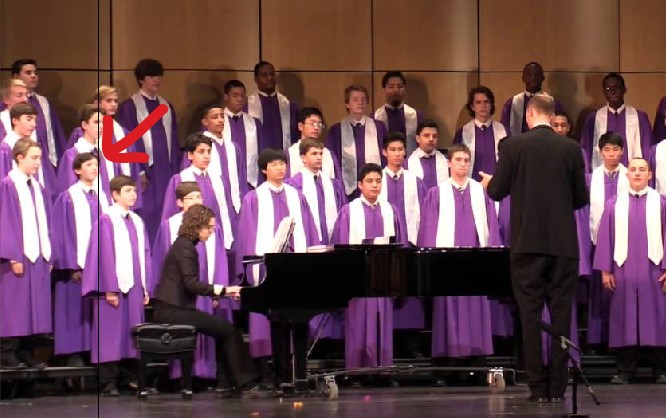Why it Sucks to Have Your Voice Change
When I was thirteen years old, I was, for the most part, a soprano; sure, I mostly sang alto in choir, but my voice went just as high as most of the soprano singers, and I was known to jump up to the soprano part from time to time. A year later, my voice had dropped an octave, and I struggled to sing tenor.
Despite all of its benefits, the male voice change has a great many drawbacks. Here is a list of five reasons why it sucks to have your voice change:
- The Sass: Like it or not, a lot of people associate teenagers with sassiness. This likely has its roots in the rebellious or defiant nature of some (certainly not all) teenagers. As a defining characteristic of teenage boys, a newly changed voice often gets associated with sassiness as well. The result is that when your voice changes, it can be nearly impossible to talk to certain people without being taken as offensive. Personally, I always subconsciously associated teenage boys’ voices with sassiness, which made it especially difficult for me to feel confident about my new way of talking.
- The Challenge: especially in a school setting, there are occasionally adults who are accustomed to feeling “above” or in charge of children. When a boy’s voice changes, some adults feel challenged by the maturity and autonomy that a changed voice is thought to represent. I’ve found that since my voice changed, adults have been generally more strict with me, which probably has something to do with the teachers wanting to maintain their sense of power and authority.
- The Singing: many people assume that every boy loves the grown-up, “manly” sounding voice he develops when his voice changes, but this is not always the case. Like a lot of boys, I sang a lot before my voice change. Boys who become used to singing with an unchanged voice must learn to refine, control and take care of a new voice when their voice changes. All too often, people underestimate just how different it is to sing with a changed versus an unchanged voice. It is not a matter of singing the exact same thing but having it sound lower. Speaking from experience, switching from an unchanged voice to a changed voice is much like switching from a guitar to a bass: The chords are just thicker and longer, but it requires new training and technique to play. In effect, switching from an unchanged voice to a changed voice is like learning to play an entirely different instrument.
- The Voice Crack: while unimportant in the grand scheme of things, voice cracks are worth a mention. For some people, having a voice crack in public can be awkward or embarrassing, although it never really bothered me.
- The Identity: Perhaps the greatest negative effect of a boy’s voice change is a loss of a part of his identity. Our voices are very significant to who we are, and they are a bigger part of us than many of us realize. By the time my voice changed, I had spent over a decade with my unchanged voice. It is how I had always communicated with the world. It was a major part of how the world saw me. It was one of the things I associated with my personality. People knew who I was when they heard me speak. When my voice changed, all of this changed as well. Did others grow accustomed to my new voice? Of course they did. Did I learn to take my new voice as a part of my identity? Of course I did. Yet the changing of my voice came at a great cost; it’s no wonder it can suck so much to have your voice change.
Me as a 14-year-old singing along with me as an 11-year-old to “Buddy Holly” by Weezer.
About the Contributor

Danny Freiband, Journalist
This is Danny's first semester doing communicator. He is a sophomore at Community who enjoys music and learning, and plans to work on being proactive in order to be successful in his journalism class.













